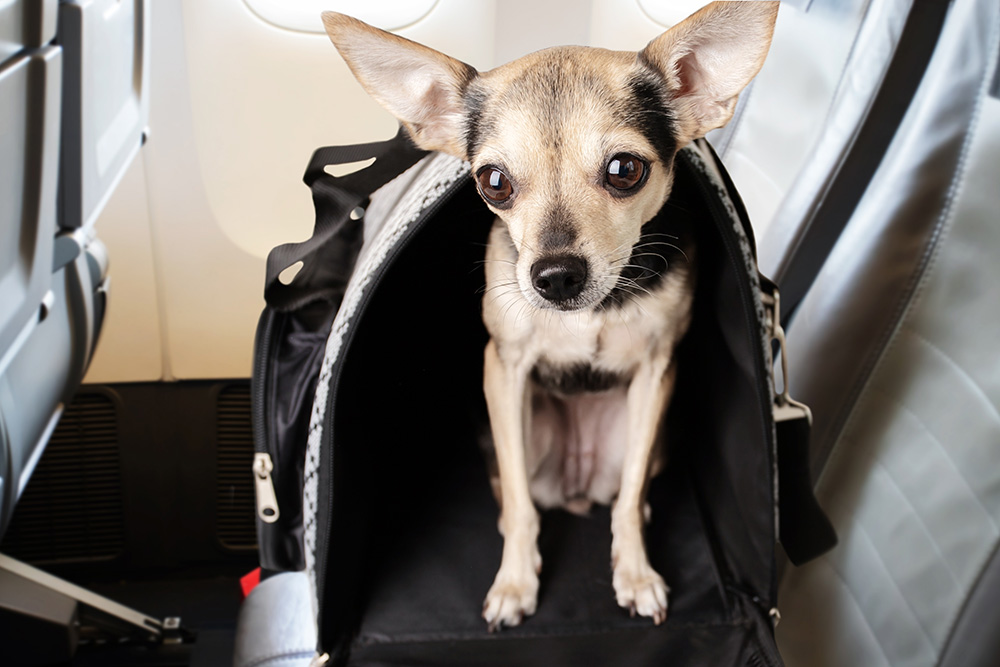Pet Travel Risks: Diseases to Watch for on the Road
Traveling with your pet can be a joyful and enriching experience—but it also comes with real health risks. Whether you’re planning a weekend road trip or an extended holiday getaway, your pet’s safety should never take a backseat. At Pinedale Animal Hospital, we’re committed to helping pet owners in Pinedale, Wyoming prepare for safe, healthy adventures—wherever the road (or sky) may take you.
Health Risks Pets Face During Travel
Parasitic Infections: Fleas, Ticks, and Heartworms
When you travel to new environments, your pet may be exposed to parasites they’re not normally at risk for at home. Fleas and ticks are more than just a nuisance—they can transmit diseases like Lyme, ehrlichiosis, and tapeworms. Mosquitoes can carry and spread heartworm disease, a potentially fatal condition if left untreated.
Before you hit the road, consult the Canine Heartworm Prevalence Map from CAPC to understand regional risk levels. Also, review the Canine Preventive Guidelines by AVMA/AAHA for a full checklist of recommended health precautions.
Prevention tip: Make sure your pet is up to date on monthly preventives for heartworms, fleas, and ticks—ideally at least two weeks before travel. Year-round prevention is always best!
Infectious Diseases: Kennel Cough & Canine Influenza
During travel, your pet may interact with other animals at hotels, rest stops, dog parks, or boarding facilities. This increases the risk of exposure to highly contagious illnesses like kennel cough or canine influenza. Vaccines are available and often required for boarding, grooming, or daycare.
Symptoms of these illnesses include persistent coughing, nasal discharge, fatigue, and decreased appetite. Left untreated, they can progress to pneumonia—especially in young, senior, or immunocompromised pets.
Learn how to minimize your pet’s exposure and stress during travel with AAHA’s Guide for Stress-Free Holiday Travel With Your Pet.
Vector-Borne Illnesses: Lyme Disease & Leptospirosis
Both of these serious diseases are transmitted via environmental exposures. Lyme disease comes from infected ticks, while leptospirosis is a bacterial illness spread through contaminated water sources—like puddles or standing water.
Learn more about Leptospirosis and puddle-borne pathogens and how to protect your pet in unfamiliar environments. Vaccination and vigilance are key, especially in regions where these diseases are common.
Also beware of blue-green algae in lakes or ponds, which can be extremely toxic if ingested.
Preparing for Regional Health Risks
Different locations come with different risks. For example:
- Southern and Midwest states often carry high heartworm prevalence and leptospirosis.
- Northeastern states may pose greater Lyme disease risks.
- Coastal areas could present waterborne threats, including leptospirosis and saltwater poisoning.
Use tools like USDA’s Pet Travel Requirements to understand what’s needed for state-to-state or international travel.
Preparing Your Pet for the Journey
Pre-Travel Veterinary Checkups
Schedule a full exam at least 2–3 weeks before your trip. At Pinedale Animal Hospital, we’ll ensure your pet is healthy and travel-ready, with the necessary vaccinations, parasite prevention, and any required documentation for your destination.
Pro tip: Bring a printed copy of your travel itinerary and your pet’s health history to your appointment so we can tailor advice specifically to your plans.
Health Certificates & Vaccination Records
If you’re crossing state lines, flying, or traveling internationally, a health certificate may be required. These documents confirm your pet is free of communicable diseases and fit to travel. Requirements vary widely, so check with your airline or destination guidelines.
Some destinations take years of planning, testing, and treatments to be allowed in the country, so be sure to ask your vet as far in advance as possible.
Find more detailed information in the AVMA’s Pet Travel FAQ or AAHA’s Ultimate Guide to Traveling with Your Pet.
Tips for Preventing Illness During Travel
Daily Preventive Measures on the Road
- Avoid letting your pet drink from puddles or lakes (especially due to risk of leptospirosis or blue-green algae).
- Use flea, tick, and mosquito repellents daily as directed.
- Bring your own food and bottled water to avoid digestive issues.
- Wash your pet’s bedding frequently during longer trips.
Pack a pet-specific first-aid kit, and consider taking a Red Cross pet first aid course for extra confidence.
Handling Emergencies While Traveling
Despite your best efforts, emergencies can happen. From encountering a raccoon in a rest area trash can to severe car sickness, travel and strict timelines seem to attract problems. Some signs that require immediate attention include:
- Persistent vomiting or diarrhea
- Difficulty breathing
- Excessive lethargy or collapse
- Wounds or trauma
- Swollen abdomen
- Seizures
It’s also wise to bookmark local animal hospitals at your destination in advance.
Need help evaluating symptoms on the go? Learn how to recognize toxic and non-toxic plants with the ASPCA guide or what to do if you encounter a wild animal.
Frequently Asked Questions (FAQs)
Q: What should I pack for my pet when traveling?
A: Food, water, travel bowls, medications, first-aid kit, vaccination records, leash/harness, toys, bedding, poop bags, and a carrier or crate.
Q: Should I stop often during road trips?
A: Yes—plan for breaks every 2–3 hours so your pet can stretch, hydrate, and relieve themselves.
Q: Can my pet get sick from new environments?
A: Absolutely. New parasites, pathogens, and even stress can affect your pet’s immune system. Prevention is your best defense.
Plan Ahead for a Safe and Healthy Trip
The key to protecting your pet while traveling is preparation. A little effort before your trip can prevent serious complications later.
At Pinedale Animal Hospital, we’re here to guide you through every step—whether it’s scheduling a pre-travel exam, customizing your pet’s preventive care, or providing last-minute travel documentation.
Let’s make your next adventure safe, healthy, and fun—for both you and your pet.








Leave A Comment